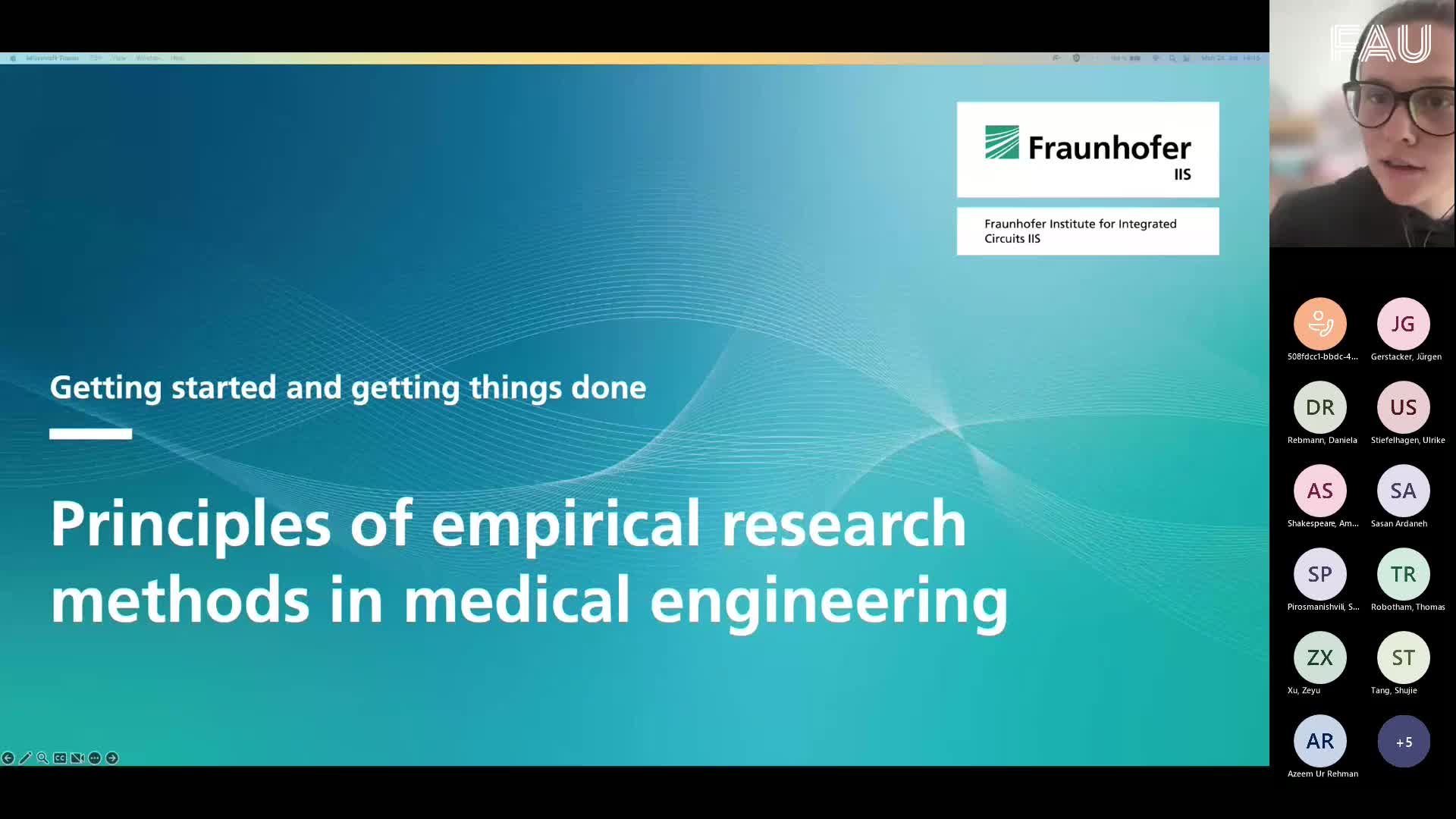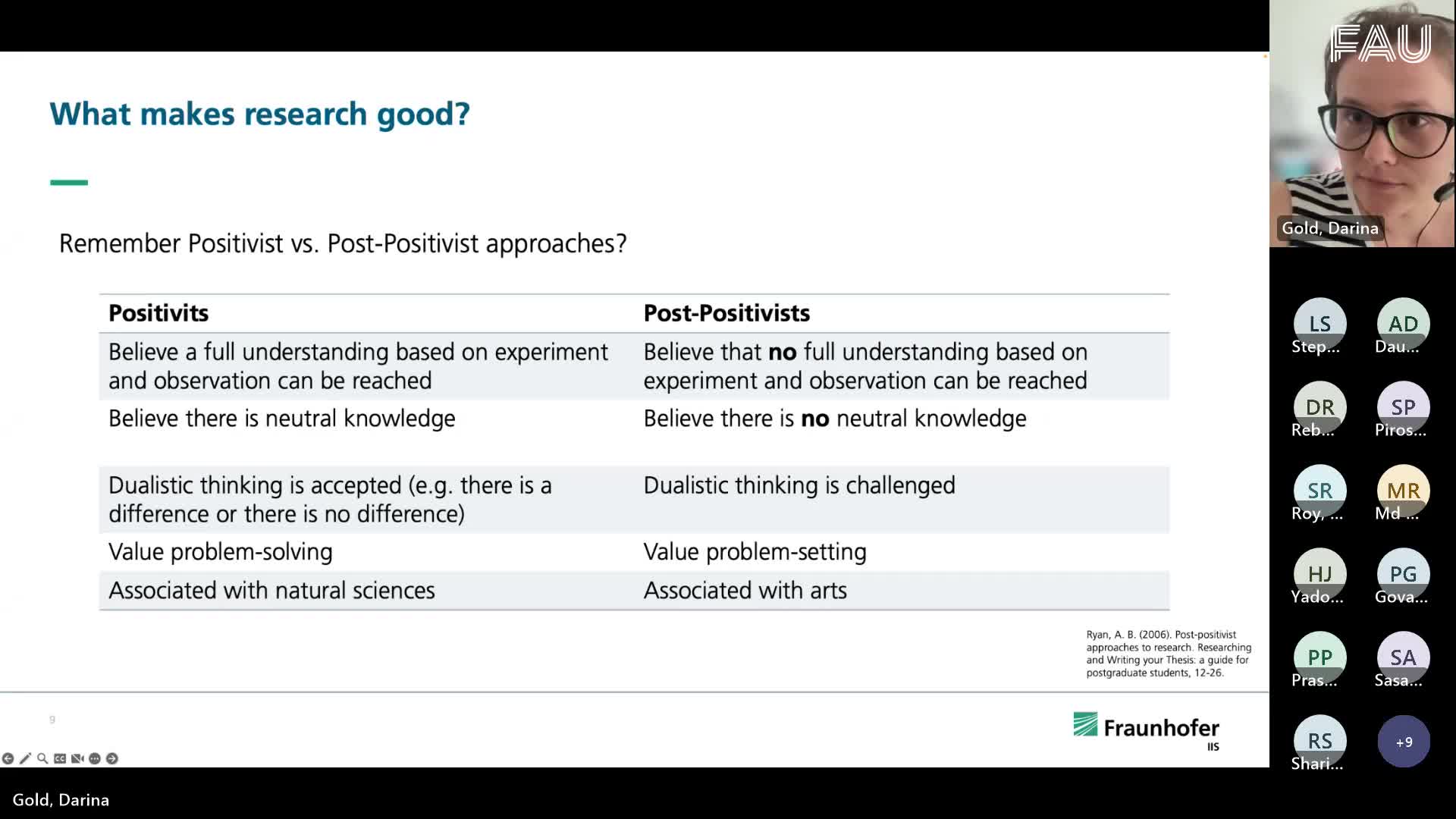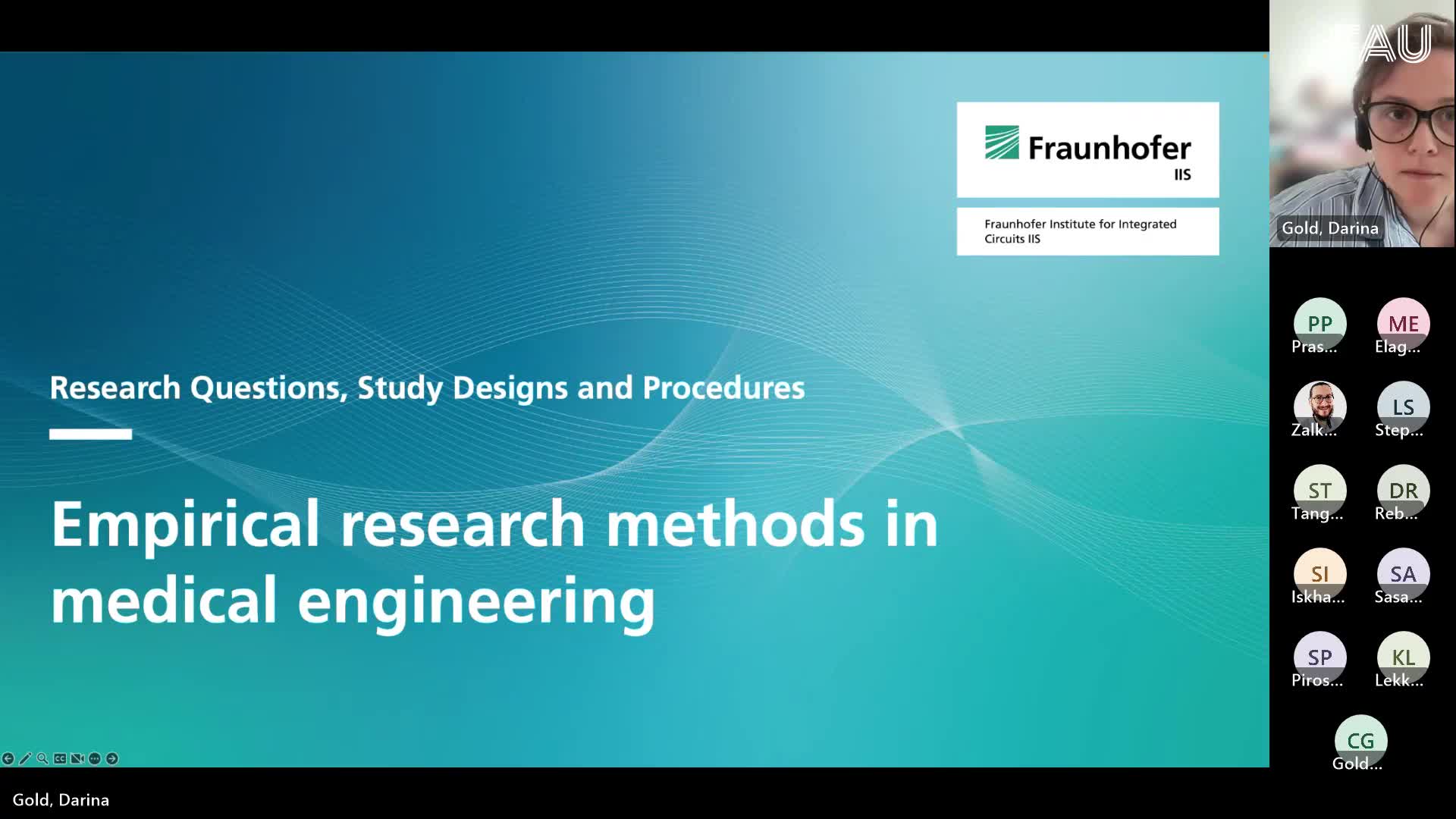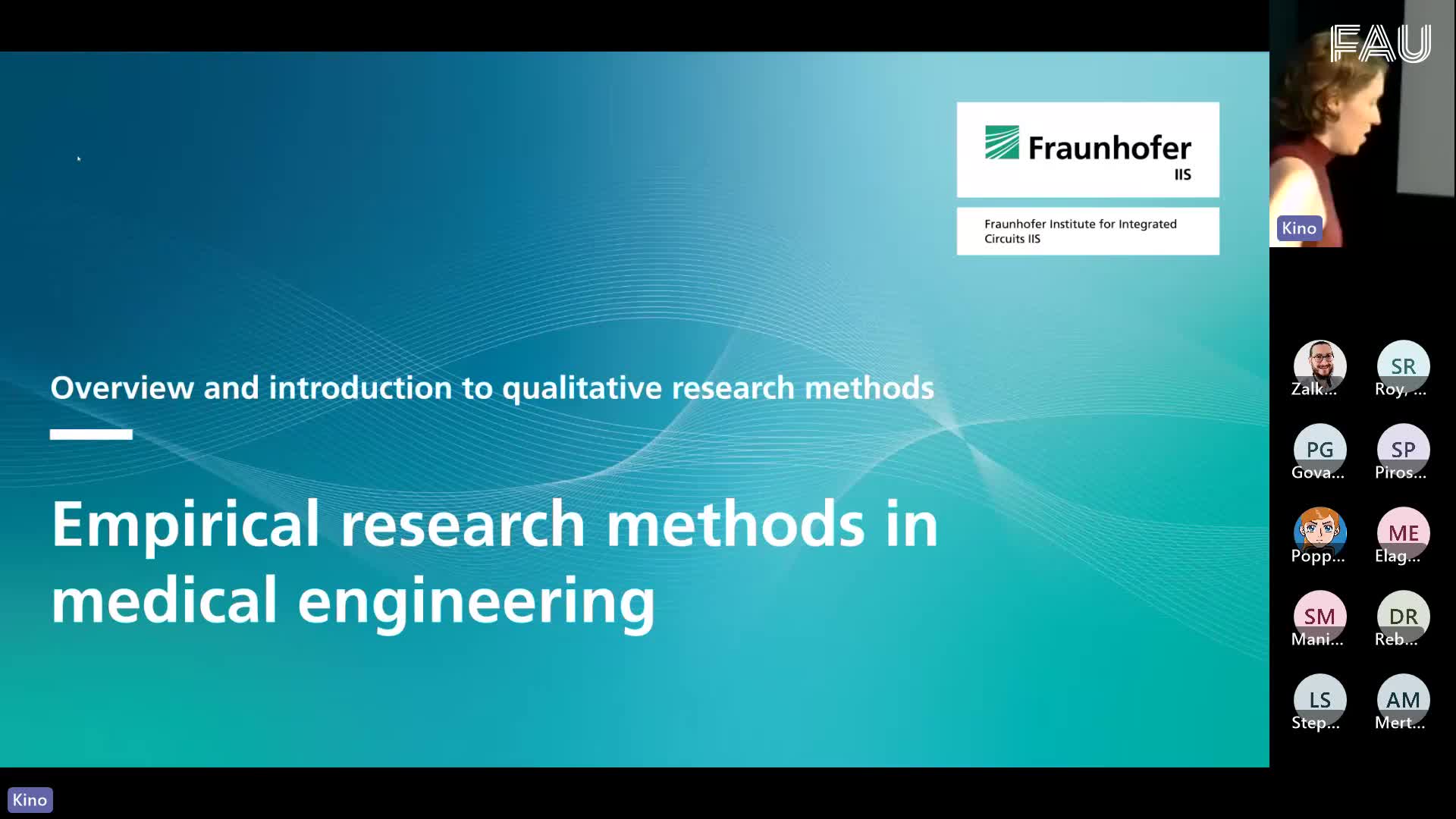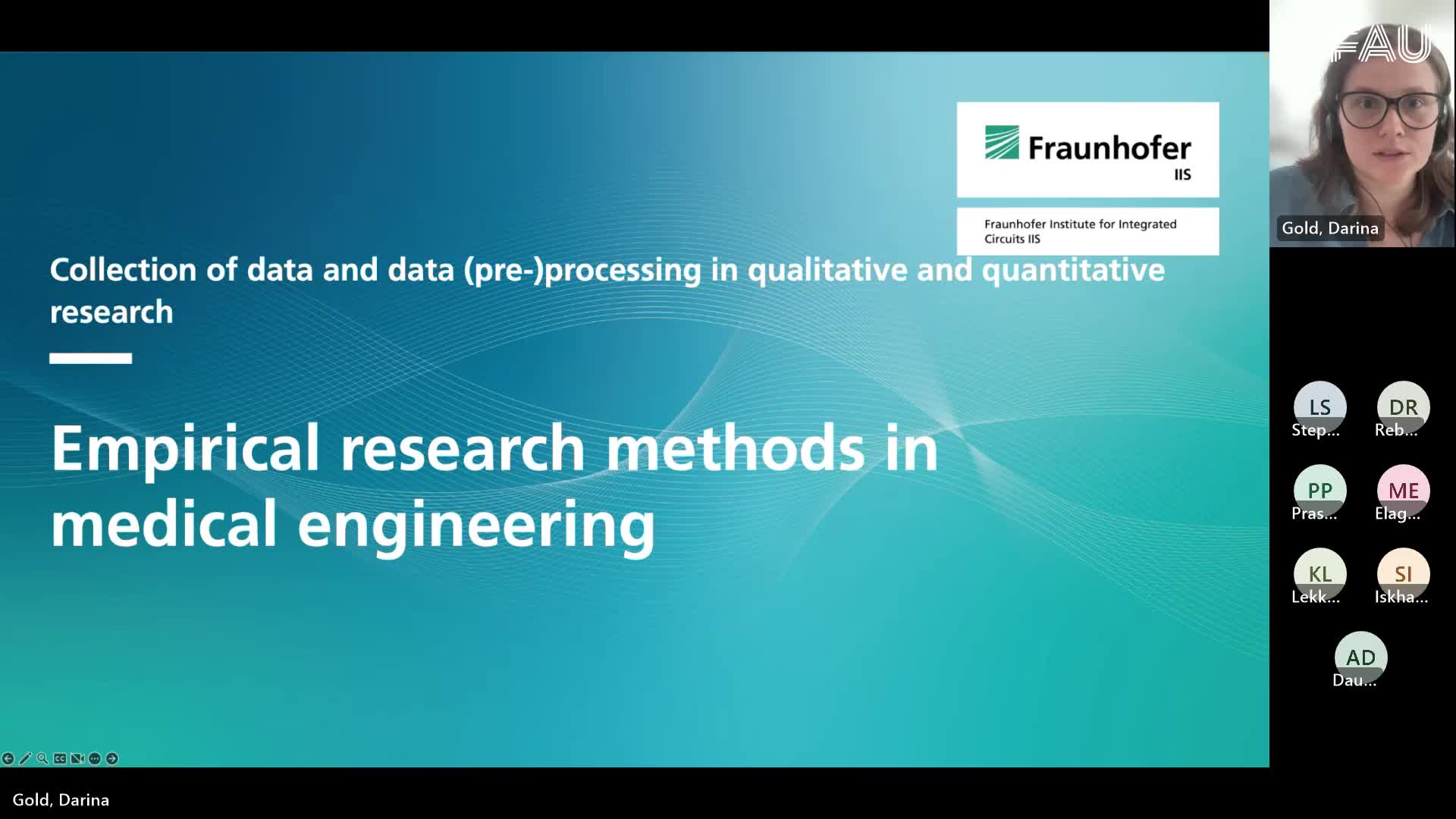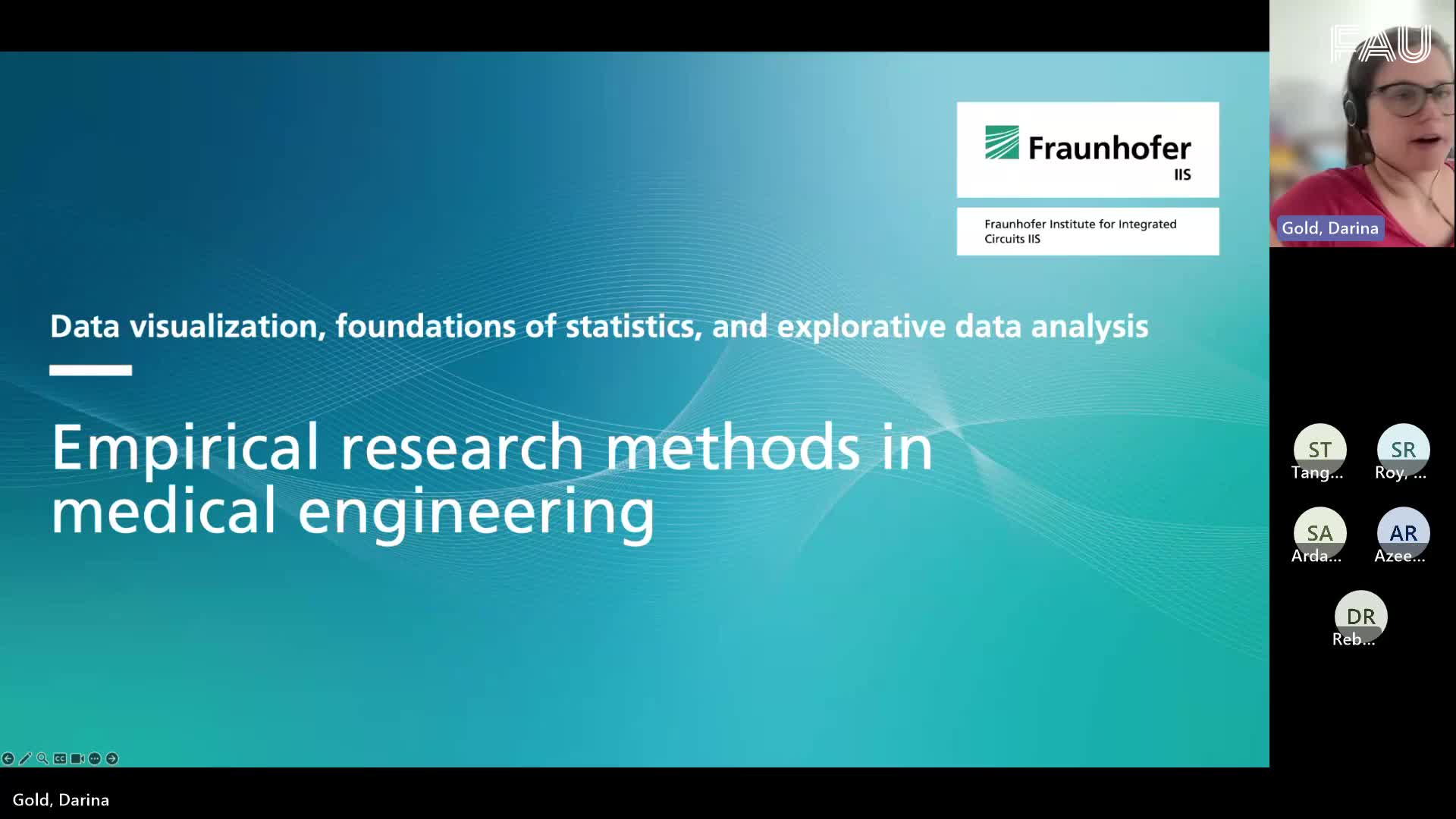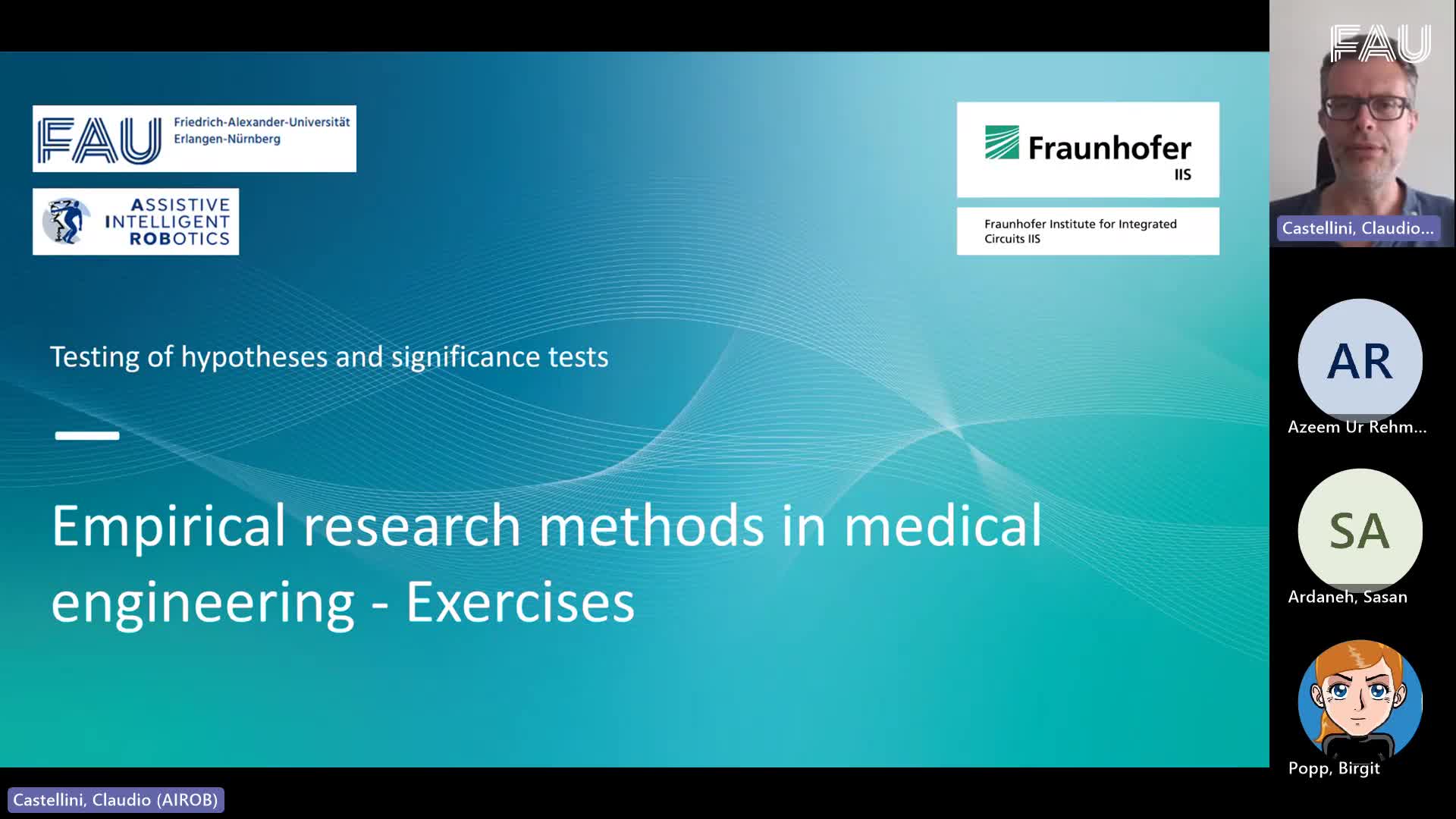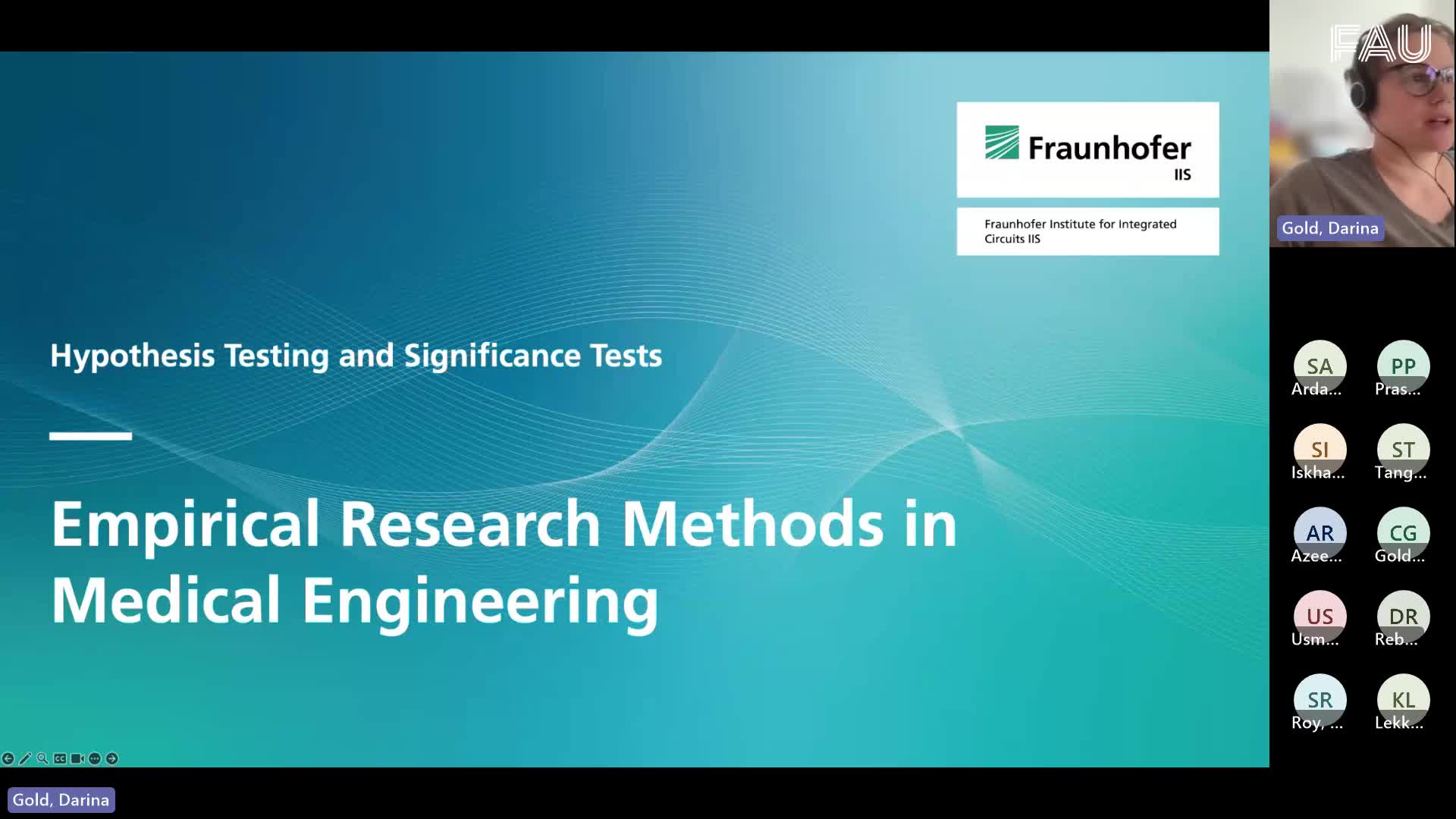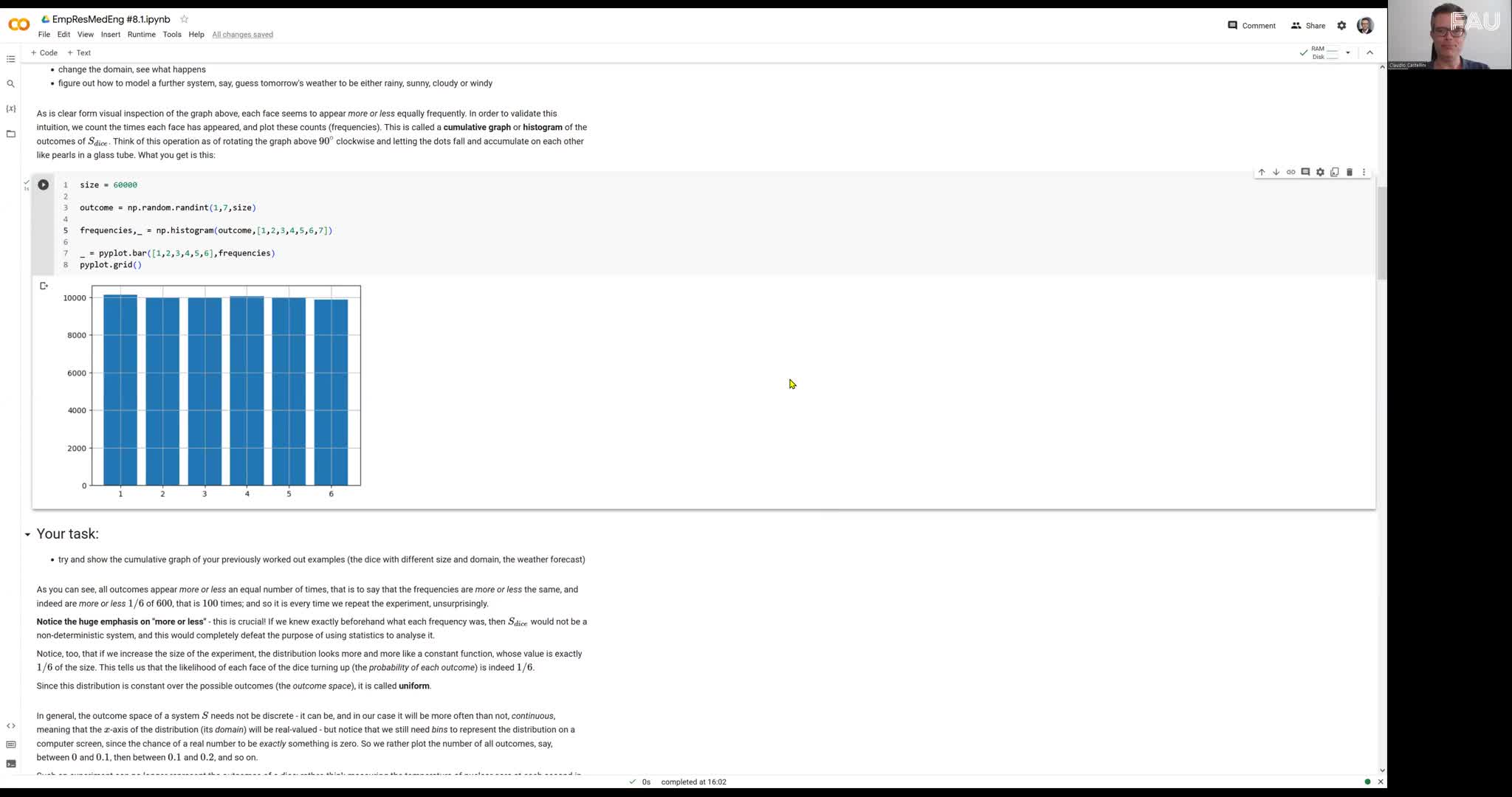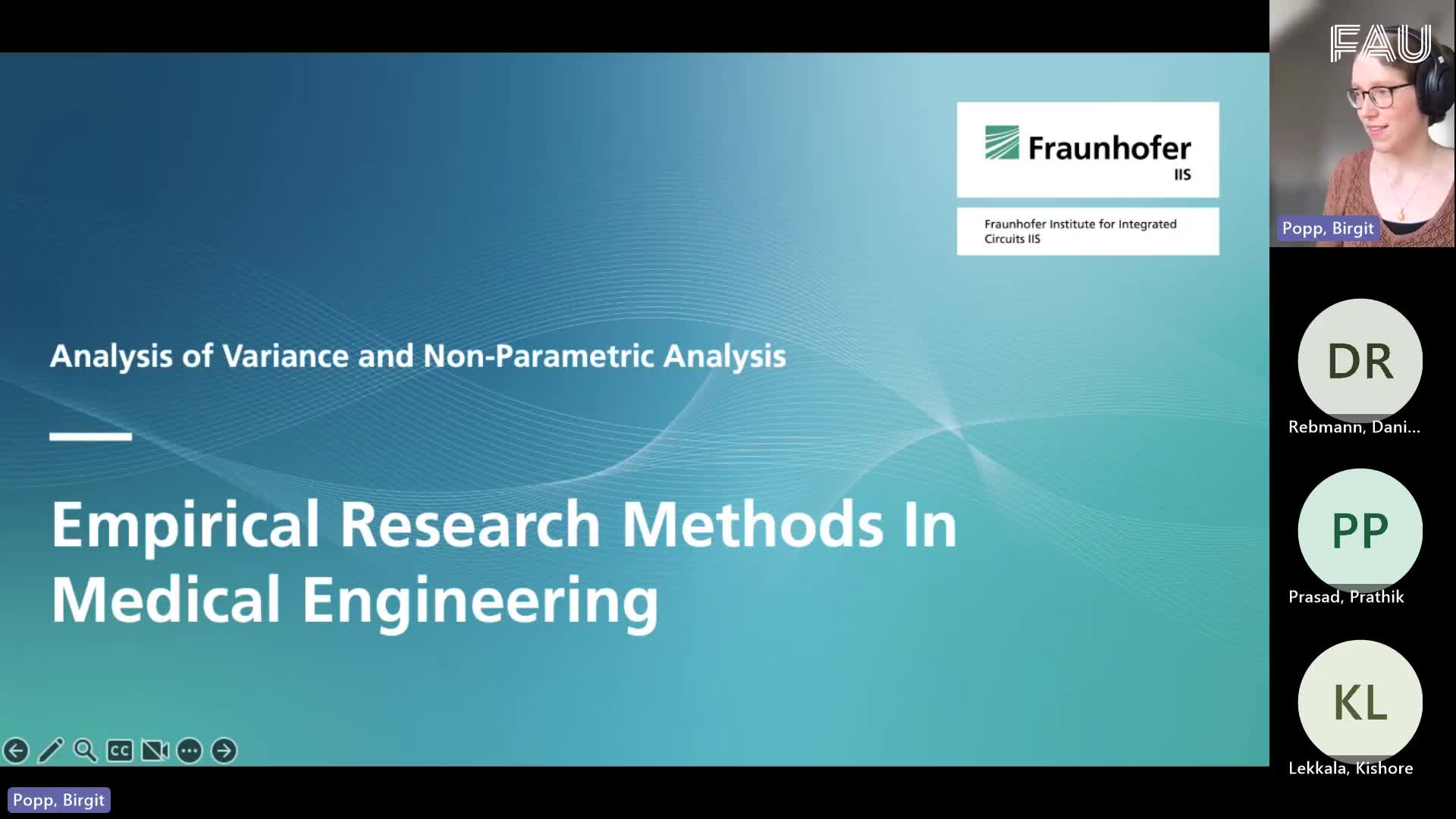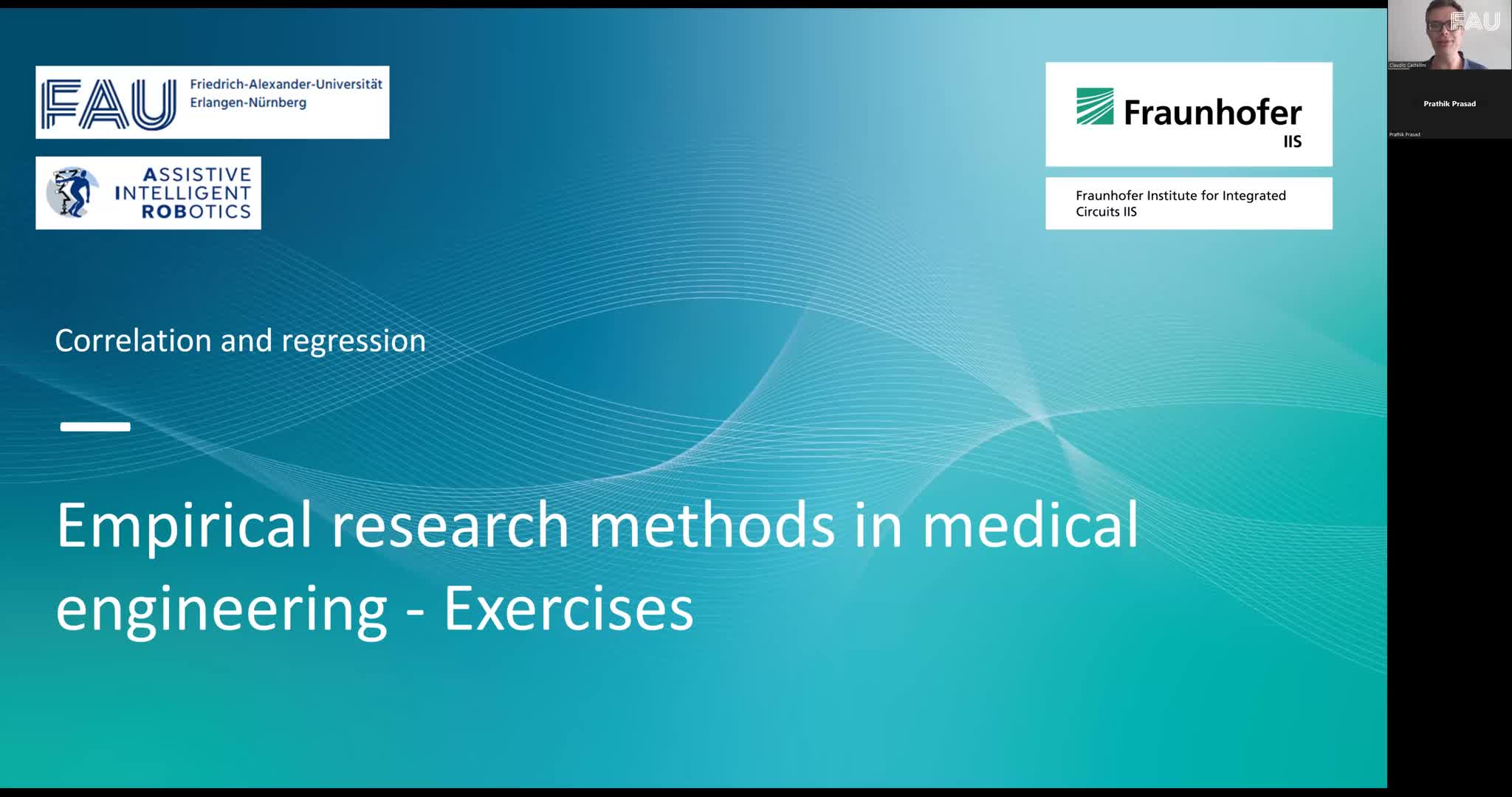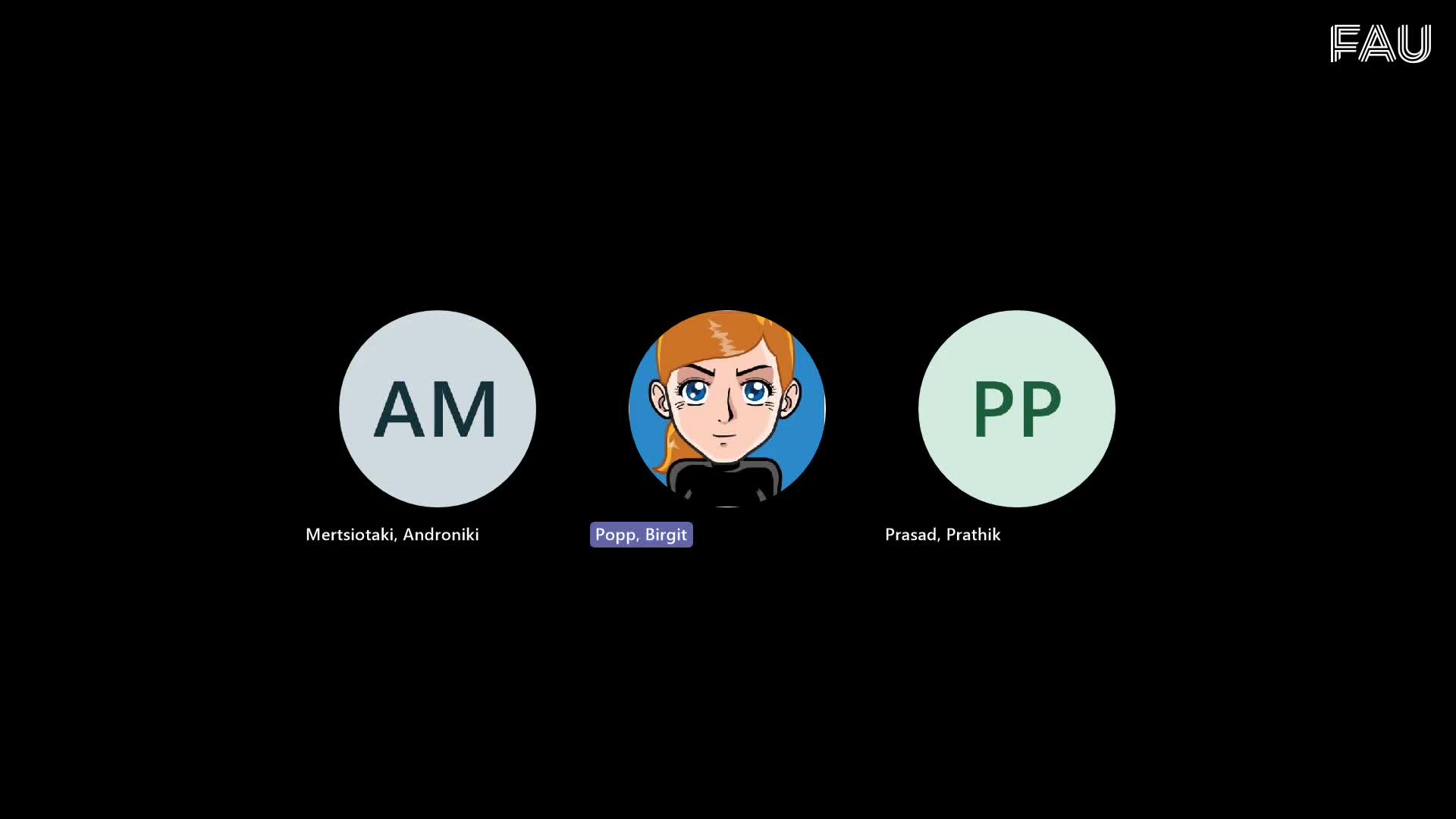The aim of the lecture is to enable students to plan and conduct experiments independently.
Starting from basics of perception and definition of the research question, both qualitative and quantitative methods are introduced on experimental design, sample design, experimental design and execution, data collection and processing, and analysis of the experimental results and embedding the experimental results in the scientific context in scientific writing. Statistical methods including exploratory data analysis and visualization, methods of analysis of variance as well as non-parametric methods will be treated as tools for the analysis and interpretation of experimental results. Qualitative methods include interviews, ethnography, coding, memos, and diagrams.
The course of the lecture follows the scientific discovery process and covers the individual steps from the research question to the generation of suitable hypotheses and their testing.
The lectures are accompanied by practical exercises that allow students to apply the knowledge from the lectures and start train their empirical research skills.
The lecture series covers:
1. Introduction and History of Empirical Research Methods (focus on medical sciences)
2. Getting Started and getting things done
3. Fundamentals of empirical research
4. Research Question and Study Design
5. Overview and introduction to qualitative research
6. Collection of Data and Data (Pre) Processing in qualitative and quantitative research
7. Introduction to quantitative analysis: Data Visualisation, Foundations of Statistics, and exploratory data analysis
8. Testing of Hypotheses and Significance Tests
9. Correlation and Regression
10. Analysis of Variance and non-parametric Analysis
11. Scientific Writing
12. Mock Exam
